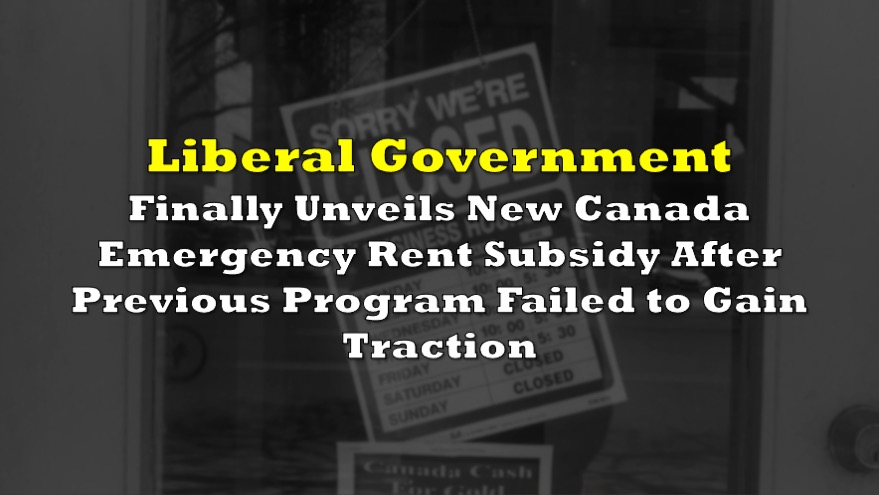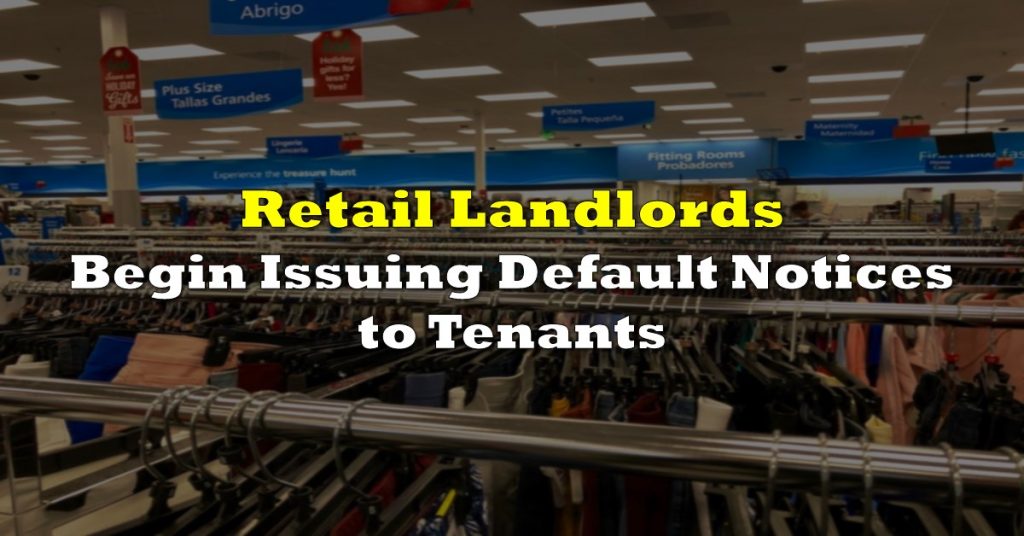Canadian businesses that have been facing significant difficulties in meeting their debt obligations have finally been given a viable lifeline from the federal government – eight months into the coronavirus pandemic.
The Liberal government yesterday unveiled the Canada Emergency Rent Subsidy, which will replace the previous rent-support program that relied on landlords applying on behalf of their tenants. The new program will cover up to 65% of commercial mortgage interest or rent obligations, with the amount of aid based on a sliding scale of declining revenue. For those businesses that have been hit significantly harder due to the pandemic, there will be an additional 25% in subsidies made available.
Although the program is made available to businesses as of today, the federal government has only set the program’s rules until December 19, after which the Liberals have promised to take on a more targeted approach to distributing the aid. Qualifying businesses can use the subsidy to cover a variety of expenses including rent, mortgage interest, and property taxes as far back as September 27. However, Canadian Federation of Independent Business (CFIB) executive vice-president Laura Jones points to several shortcomings with the newest subsidy program that the federal government has failed to address.
Jones noted that many businesses across Canada are not familiar with the new program or its lengthly application process, and fear that they may be ineligible given that their revenue losses are not as drastic as they were during the first version of the subsidy program. In addition, the revamped program requires that entrepreneurs make their rent payments prior to applying for the aid, which will likely only put the subsidy further out of reach for stores already struggling with revenue losses.

The Canada Revenue Agency has said that it will not be requiring applicants to prepay before they receive their aid, but any rent expenses that have not been settled at the time of application will have to be paid within two months. As noted by Bloomberg, Conservative MP Pat Kelly criticized the Liberal’s rent subsidy, bringing attention to the program’s ill-timing. “This is the first day that small businesses have been able to apply for the rent subsidy. Most didn’t even qualify for the old subsidy, but even for those that did, that program expired in September, and December’s rent is a little over a week away.”
Indeed, with December rent obligations soon approaching, there will certainly be a lot of pressure on the CRA to process applications as quickly as possible. Although the CRA promised that the application process will be smooth even for applicants that the agency does not have information on file for, the ongoing rise in coronavirus cases threatens to put even further strain on business revenues, especially in the event of additional lockdown measures.
In the meantime, commercial rents increased by 0.7% in the third quarter, following what was a record-breaking drop of 1.8% in the second quarter. According to Statistics Canada, the third quarter rent increase for commercial properties amid the pandemic was the result of the gradual phasing-out of rent relief programs in the prior quarter, as well as an improvement in Canada’s labour market.
Information for this briefing was found via Bloomberg and Statistics Canada. The author has no securities or affiliations related to this organization. Not a recommendation to buy or sell. Always do additional research and consult a professional before purchasing a security. The author holds no licenses.









